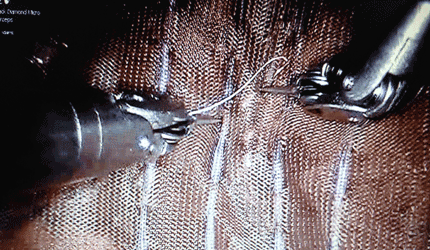
First Human Prostate Implant Uses IsoRay’s Cesium-131 Seeds and C4’s Sirius MRI Markers
The first-in-human prostate implant of IsoRay’s Cesium-131 radioactive seeds using C4 Imaging’s positive signal MRI markers was conducted at MD Anderson Cancer Center in Houston, Texas, the company said Monday.
Implanting physician Steven Frank said the combination of the two technologies will “optimize” treatment and quality patient outcomes in the field of prostate cancer.
According to C4 Imaging, high-quality prostate brachytherapy implants carry a 93 percent eight-year prostate-specific antigen relapse-free survival rate, but its ability to accurately identify the seeds is poor.
The Sirius MRI marker consists of a sealed biocompatible polymer capsule with the MRI agent, which facilitates localization of IsoRay’s seeds once they are implanted. The seeds release radiation at a distance of 15 mm, largely concentrated within the prostate.
“The ability to precisely place a specified dose of radiation means there is less likelihood for damage to occur to healthy surrounding tissue compared to alternative treatments,” IsoRay said. Cesium-131’s 9.7 day half-life also allows for quicker resolution of side effects than Iodine-125, which has a 200-day half-life, the company added.
Cesium-131 is cleared for use in the U.S. and Europe. It is available as a single-seed applicator, as well as in strand form and in an implantable mesh. — Lena Freund
Subscribe to Devices & Diagnostics Letter for complete coverage of the medical devices industry. Click here for more information.
